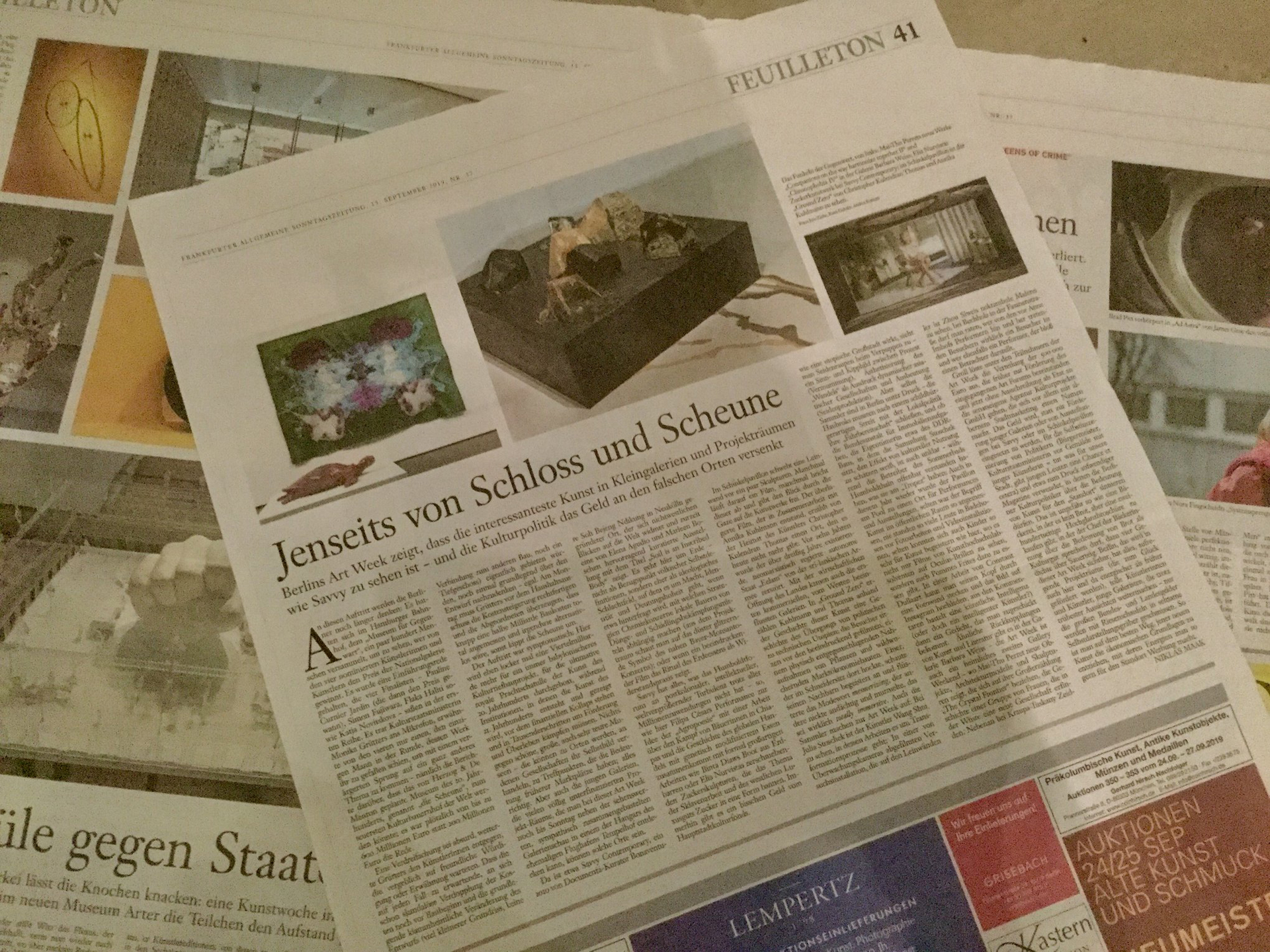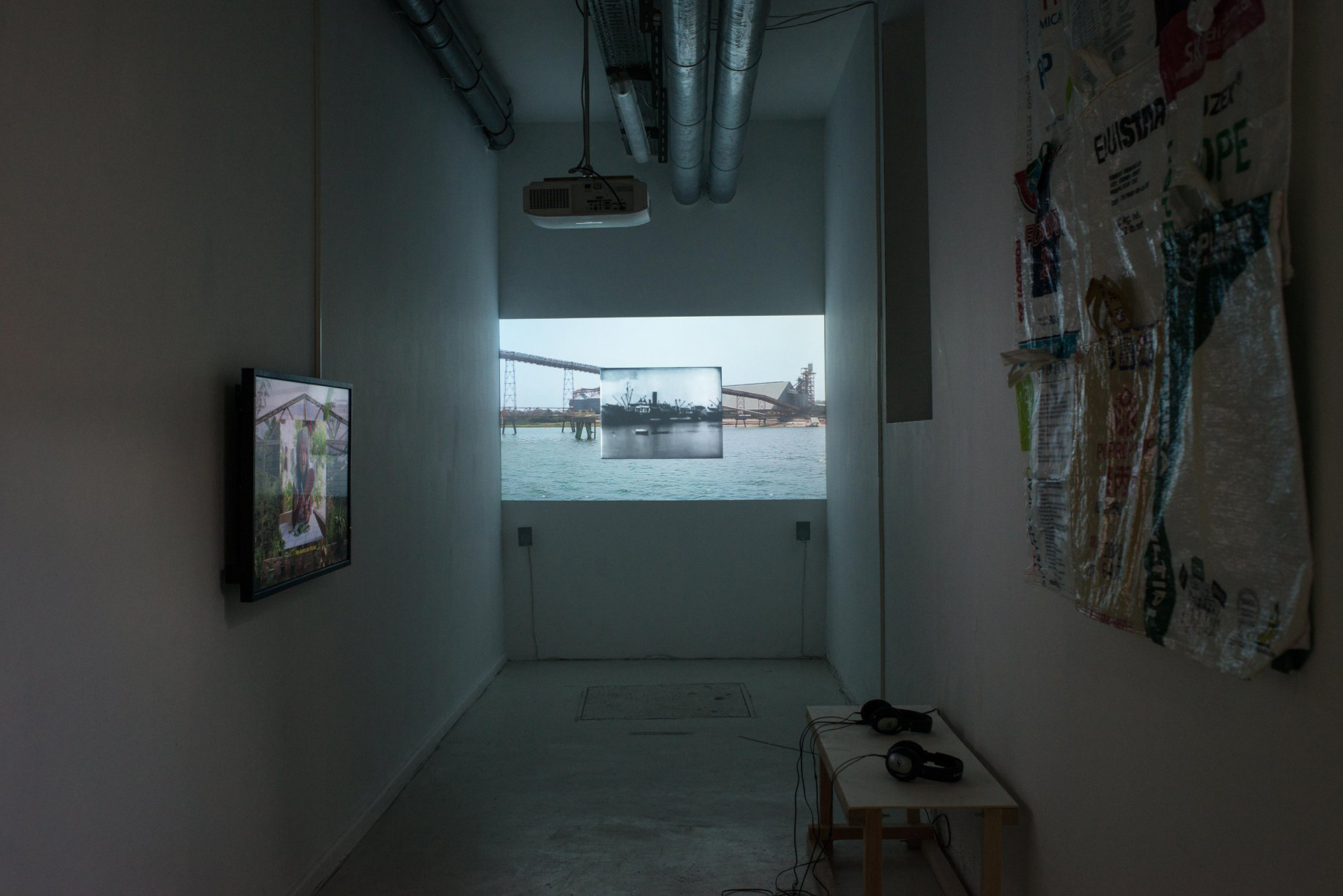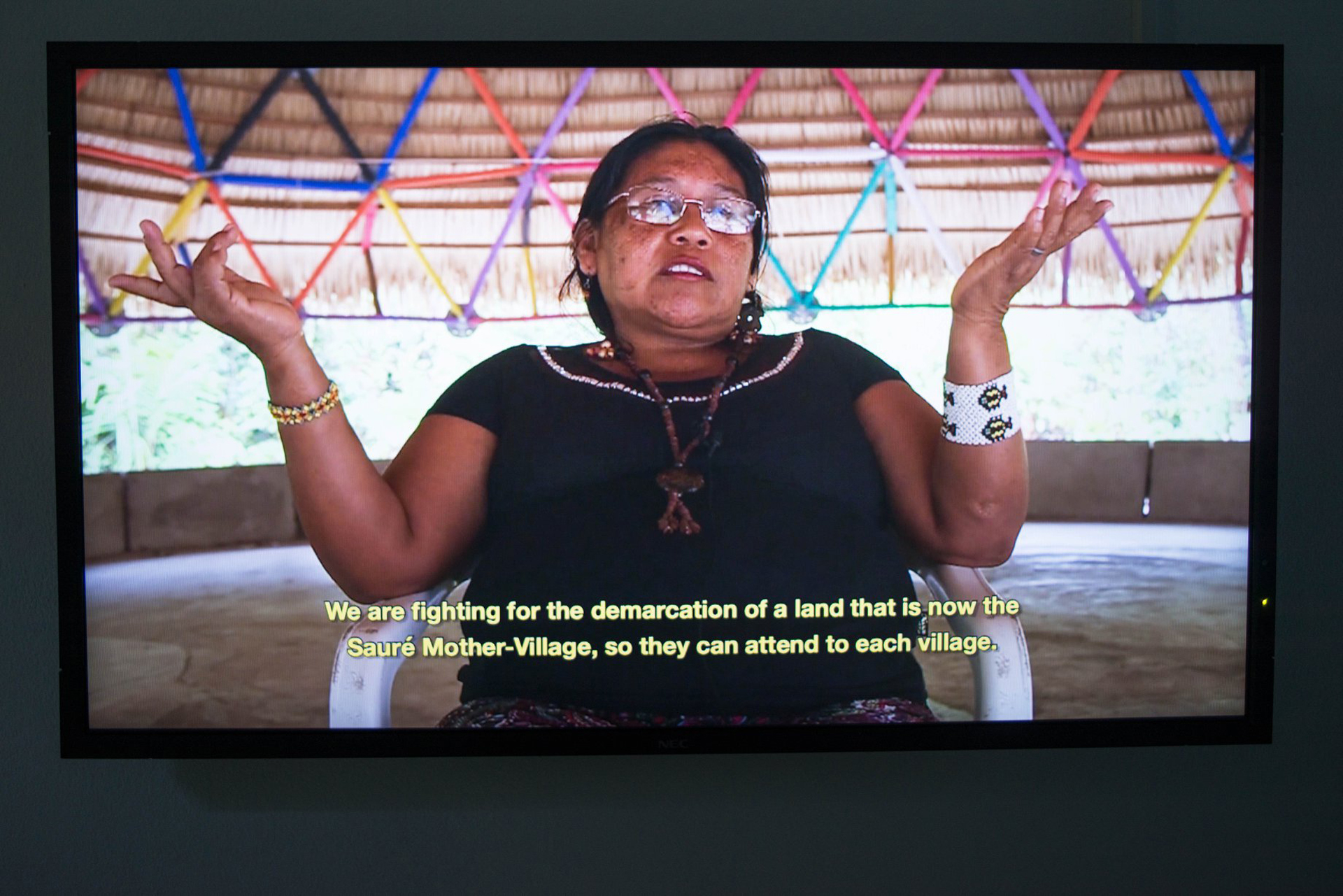SOIL IS AN INSCRIBED BODY. ON SOVEREIGNTY AND AGROPOETICS
31.08.– 06.10.2019. Research, performance and exhibition project with Dina Amro, Archipel Stations Community Radio, Luis Berríos-Negrón, Filipa César with Ahmed Isamaldin and Ali Yass, Binta Diaw, Leone Contini, INLAND, Raphaël Grisey, Mia Harrison, Zayaan Khan, Yen-Chao Lin, Barbara Marcel and Ana Hupe, Julia Mensch, Pedro Neves Marques, Cedric Nunn, Elia Nurvista, Uriel Orlow, Lerato Shadi, Bouba Touré, Hervé Yamguen. At Savvy Contemporary, Berlin.
31.08.– 06.10.2019. Research, performance and exhibition project with Dina Amro, Archipel Stations Community Radio, Luis Berríos-Negrón, Filipa César with Ahmed Isamaldin and Ali Yass, Binta Diaw, Leone Contini, INLAND, Raphaël Grisey, Mia Harrison, Zayaan Khan, Yen-Chao Lin, Barbara Marcel and Ana Hupe, Julia Mensch, Pedro Neves Marques, Cedric Nunn, Elia Nurvista, Uriel Orlow, Lerato Shadi, Bouba Touré, Hervé Yamguen. At Savvy Contemporary, Berlin.
SOIL IS AN INSCRIBED BODY. ON SOVEREIGNTY AND AGROPOETICS is a project examining both the anti-colonial struggles of the past and the current land conflicts across the world to resist the invasiveness of neo-agro-colonialism and its extractivist logic. It germinates through a series of readings, interventions and workshops, and materialises in an exhibition (30.08.–06.10.2019) and a performance/discursive programme at SAVVY Contemporary (13.09.–15.09.2019). The project seeks dispersed and yet networked moments of cross-pollination between artistic strategies and agroecological initiatives from molecular to geopolitical scales.
We reflect on state and capital devastation of natural landscapes as well as on forms of self-determination and autonomy performed by local communities as a rejection of the capitalist and colonial model of agriculture, engaging in a critical analysis of certain techno-scientific epistemologies and biopolitical practices. From the free women’s village of Jinwar in Rojava to the work of communities such as the Associação para o Desenvolvimento Integrado da Mulher (ADIM) in Guinea Bissau and the agroecological activism of the Beni Aïssi village in Morocco, amongst others, we are learning from these possibilities of enacting cooperative farming practices and alternative communal life, of cultivating and building living spaces of emancipation and liberation. And yet agriculture is also being weaponised as a warden for national identity: the relationships between blood and soil, between identity and land are being essentialised and made terrain for xenophobic argumentations and paranoid constructions of the other.
How can anti-colonial and environmental alliances nurture each other? How can we sustain interspecies entanglements and polyphonic multidirectional futures? How can we transform ruins, erosion and damaged landscapes, and embrace tactics of precarity to make living possible despite economic and ecological ruination?
The soil is an inscribed body, a scarred terrain, a multitude of organisms that hold a history of erosion. It is a container and a meeting space for collectivities. This project is a tentative testing ground for artistic engagements with the soil as vessel, body and carrier for speculative, collaborative futures. We are exploring this through the practices of artists such as Bouba Touré, Raphaël Grisey, Julia Mensch, Filipa César and Inland, who are directly working with agroecological initiatives involved in struggles for land sovereignty in Mali, Argentina, Guinea Bissau and Spain. Elia Nurvista, Pedro Neves Marques, and Uriel Orlow are working on complex bodies of work and research around the extractive and violent patterns of neocolonialism and xenophobia created around agricultural practices and migrations of plants, while Barbara Marcel and Ana Hupe point to indigenous technologies that challenge these practices.


